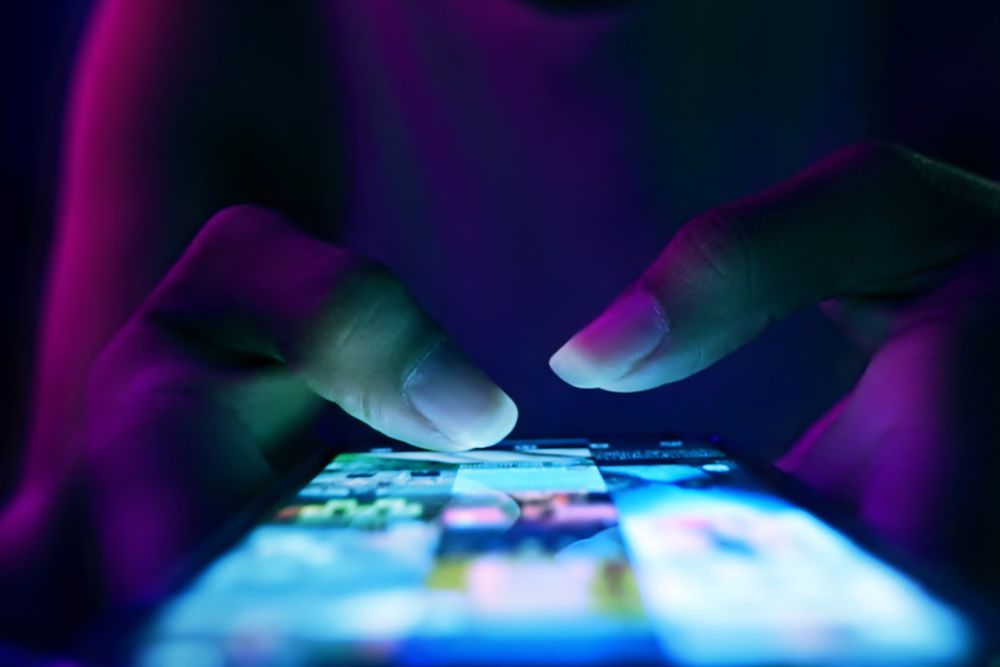Whether you’re looking for new ways to manage recovery, improve mental wellness, or simply trying to stay on top of daily life, technology can be a powerful ally. Recovery and wellness apps—particularly those focused on sobriety, self-care, and emotional support—offer tools to make the process more manageable and meaningful. While not a substitute for professional care or real human connection, they can play a vital role in reinforcing healthy habits in your daily recovery practice and providing on-demand support.
Here are six highly-rated apps that help you stay grounded, connected, and moving forward on your path of recovery. All are available for Android and Apple devices, and most offer a free version or at least a free trial to see which option works best for you.
1. WeConnect Recovery
Best for: Daily accountability and community engagement
WEconnect Recovery is built to support people with substance use disorder (SUD) or alcohol use disorder (AUD) by offering daily reminders, recovery routines, and check-ins. One of its most useful features is the ability to track and complete daily healthy activities such as attending meetings, connecting with support networks, and engaging in self-care. The app also provides access to peer recovery support specialists and virtual support meetings.
Why it works: WEconnect emphasizes structure and consistency—two key factors in long-term recovery. The virtual community meetings and peer check-ins help users stay connected and supported even when in-person resources are limited.
2. I Am Sober
Best for: Tracking sobriety milestones and managing triggers
I Am Sober is designed to allow users to track their sobriety down to the minute. It encourages users to log daily reflections, set clean-time goals, and document how they feel and what triggered cravings. The app also includes a supportive community and the ability to visualize progress with charts and milestone celebrations.
Why it works: Visualizing progress helps reinforce positive behaviors and identify patterns, which is crucial for long-term recovery.
3. Insight Timer
Best for: Meditation and mindfulness
Recovery often involves learning how to manage stress, anxiety, and cravings. Insight Timer provides a massive library of free guided meditations, sleep music, and mindfulness exercises led by top teachers around the world. Users can also join live sessions and discussion groups to stay connected and supported.
Why it works: Mindfulness practices have been shown to improve emotional regulation and reduce stress—both critical components in any recovery process.
4. Recovery Path
Best for: Coordination with treatment plans and support networks
Developed with input from addiction specialists, Recovery Path is tailored for individuals in recovery programs. It includes a mood and craving tracker, goal-setting tools, and reminders to attend support meetings or take prescribed medications. The app also allows you to share progress with your sponsor, therapist, or care team for a more integrated approach.
Why it works: The app fosters accountability while helping users stay organized and committed to their treatment goals.
5. Nomo
Best for: Clock-based tracking and mini tools for sobriety
Created by someone in recovery, Nomo—short for “No More”—lets you track multiple habits at once. It includes a journaling tool, encouragement badges, and mini distractions like games or breathing exercises to redirect cravings.
Why it works: By breaking big goals into manageable pieces and offering healthy distractions, Nomo keeps you engaged without feeling overwhelmed.
6. Happify
Best for: Boosting mental health through science-backed activities
Although not designed specifically for recovery, Happify helps users improve their emotional health with science-based games and activities. It uses principles from positive psychology, cognitive behavioral therapy, and mindfulness to help users overcome negative thoughts, build resilience, and manage stress.
Why it works: Successful recovery isn’t just abstaining—it’s also about rebuilding your mental and emotional strength. This app encourages that process through gamified engagement and personalized progress tracking.
The Big Picture: Why These Apps Matter
Lifestyle and recovery apps do more than track progress—they can change the way you experience everyday life. These tools reduce the mental effort needed to stay on top of everything, offering convenience and structure that might otherwise feel unmanageable. The best apps are those that offer more value than they consume in time, energy, or emotional bandwidth.
Additionally, many sobriety apps offer a safe and private environment where you can ask for help and share experiences without fear of judgment. But even in an app environment, be careful about what you share and with whom.
It’s smart to try different apps to see which ones resonate with you. But be honest with yourself: Is an app helping you move forward, or is it becoming a distraction? Are you using it purposefully, or just out of habit? This insight helps you truly connect with methods that support your choices.
The Trac9 App at Northern Path
Apps can’t do the inner work for you, but they can absolutely make it easier to keep going. At Northern Path Recovery Center in Fort Wayne, IN, our board-certified professionals offer a whole-person care mindset and individualized techniques that complement your daily recovery practice. As part of our comprehensive continuing care program, we provide clients with the Trac9 app. Through regular assessments on multiple topics, we help you stay engaged in your recovery journey with a clear picture of your growth and areas for continued focus, ensuring ongoing support and accountability.
Our intention is to introduce you to the right tools to design a healthier life on your terms. If you or a loved one is ready for this type of quality, in-depth treatment, talk to a member of our admissions team today.






